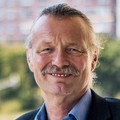Are Conflicts in the 21st Century Mainly Identity-based?
DOI:
https://doi.org/10.21036/LTPUB10309Researcher
Günther Schlee is Director at the Max Planck Institute for Social Anthropology in Halle/Saale (Germany). Before becoming Director at the Max Planck Institute, Schlee taught Social Anthropology at the University of Bielefeld and received a guest lecturing position at the renowned School for Advanced Studies in the Social Sciences (École des Hautes Études en Science Sociales) in Paris. Schlee’s ethnographic region of expertise is Northeast Africa. He has done extensive fieldwork in South Sudan as well as in parts of Ethiopia, Kenya and Somalia. His interest stems from the ethnic multiplicity that dominates in these countries. More recently, Schlee has also looked at the political effects different forms of collective identification had in other countries, such as Germany. Schlee works interdisciplinary, using both anthropological as well as political, linguistic, and economic lenses for analysis.
Original Publication
How Enemies are Made: Towards a Theory of Ethnic and Religious Conflict
Günther Schlee
Published in
Citation
Günther Schlee,
Latest Thinking,
Are Conflicts in the 21st Century Mainly Identity-based?,
https://doi.org/10.21036/LTPUB10309,
Credits:
© Günther Schlee
and Latest Thinking
This work is licensed under CC-BY 4.0
